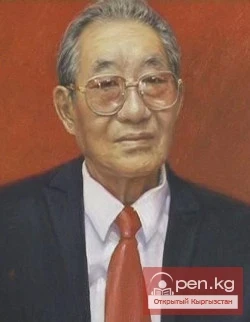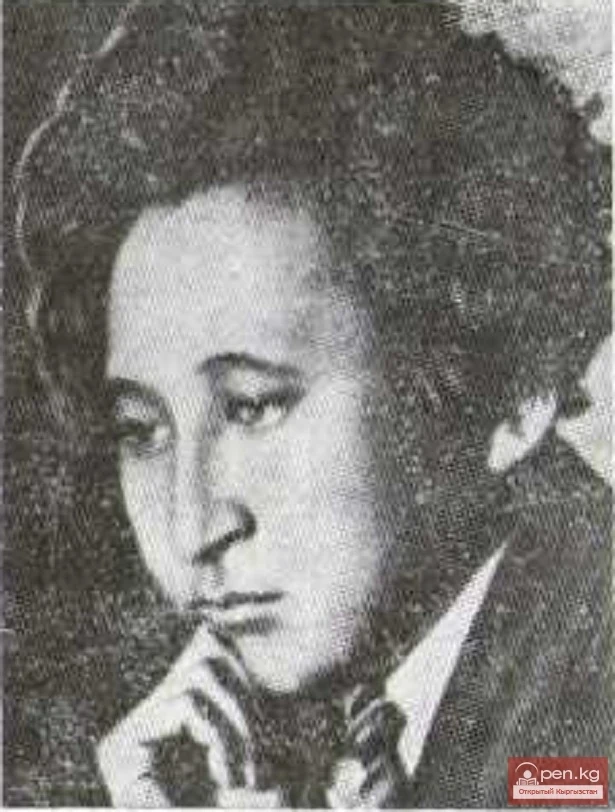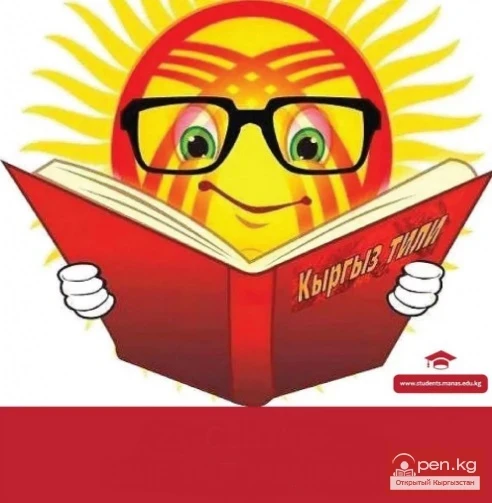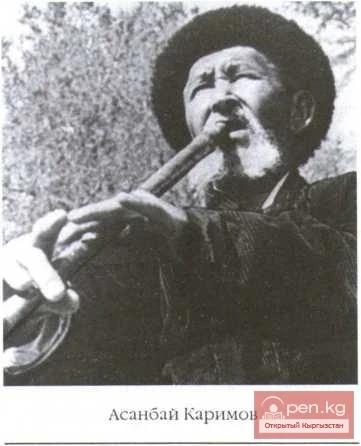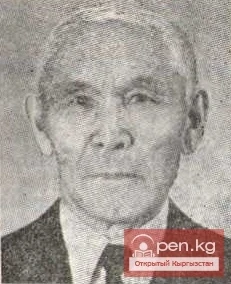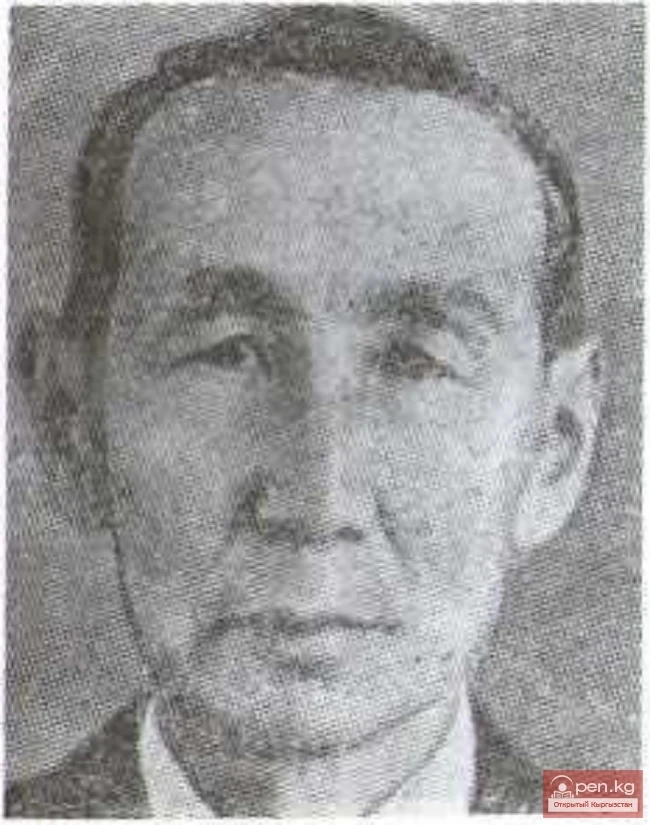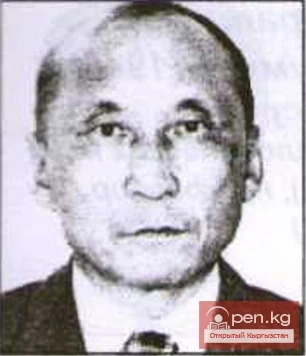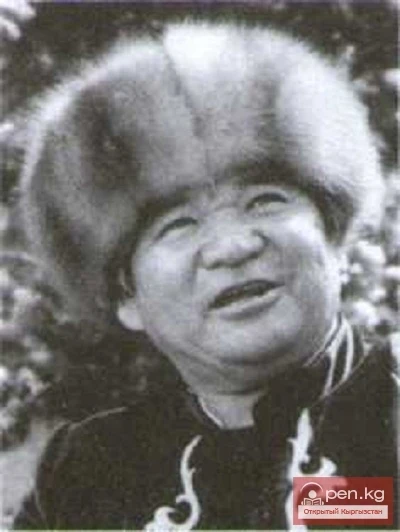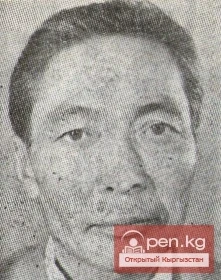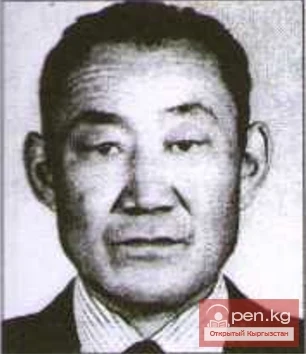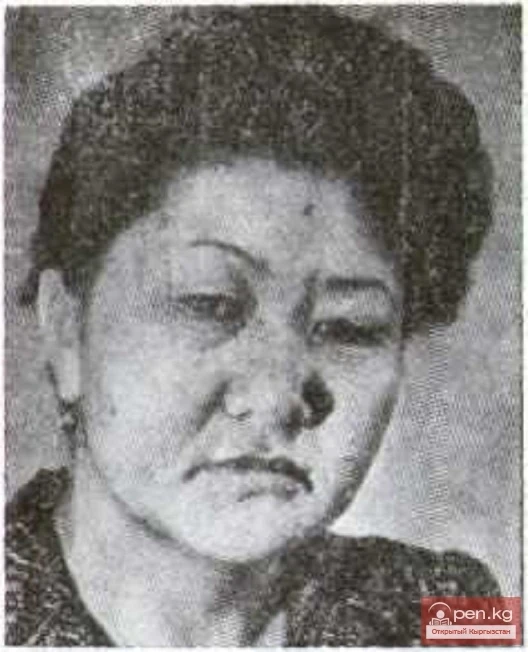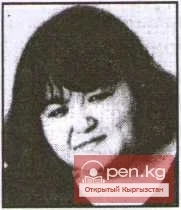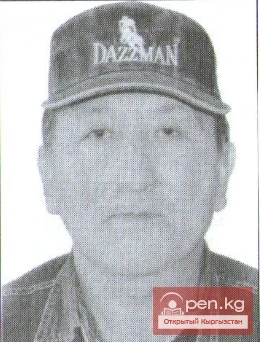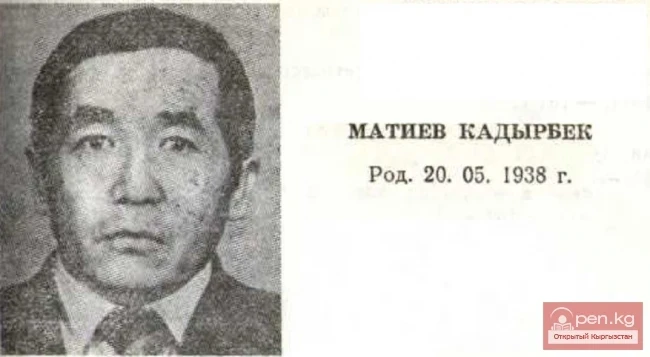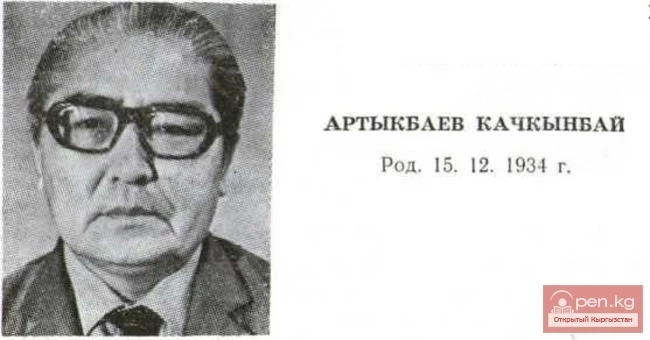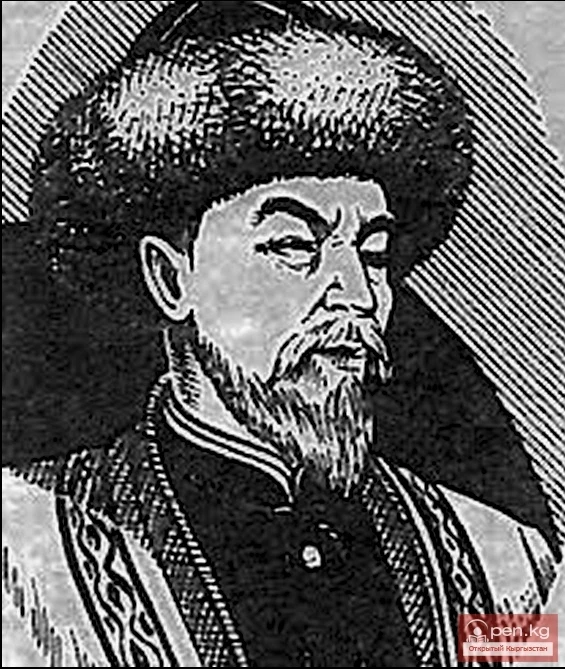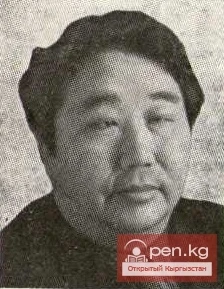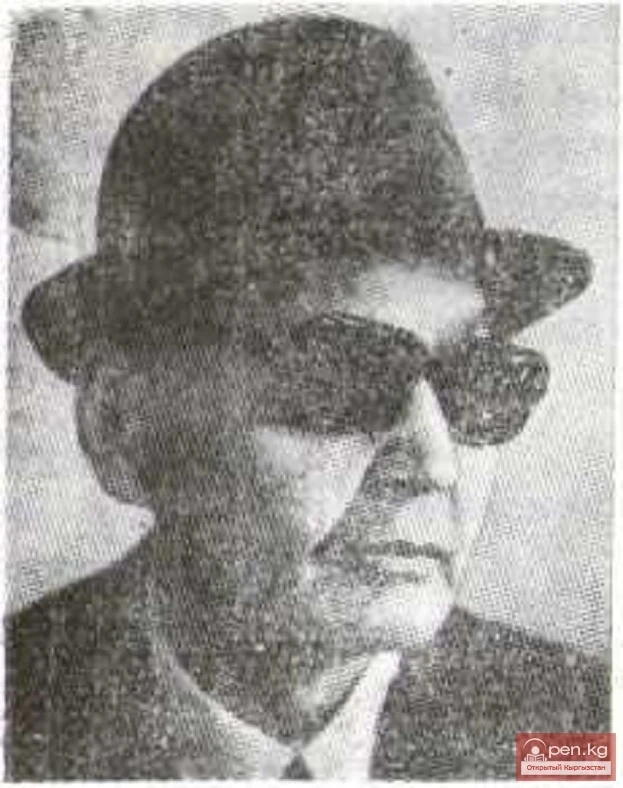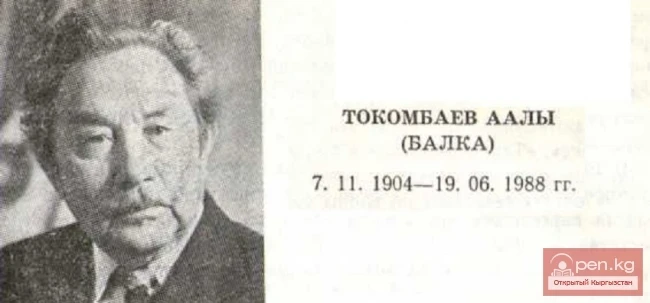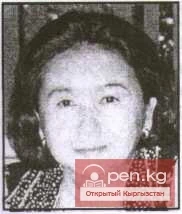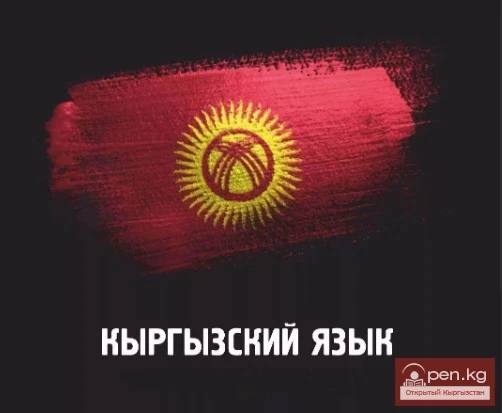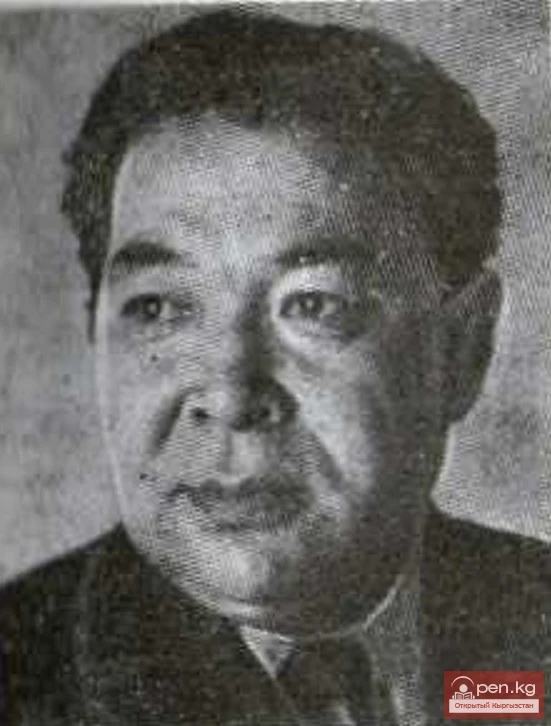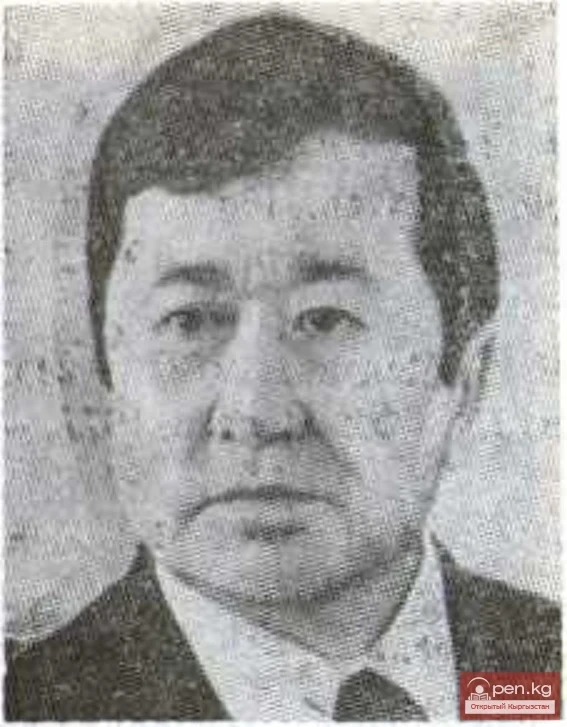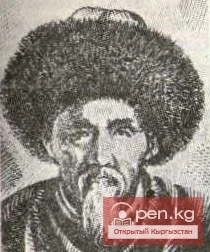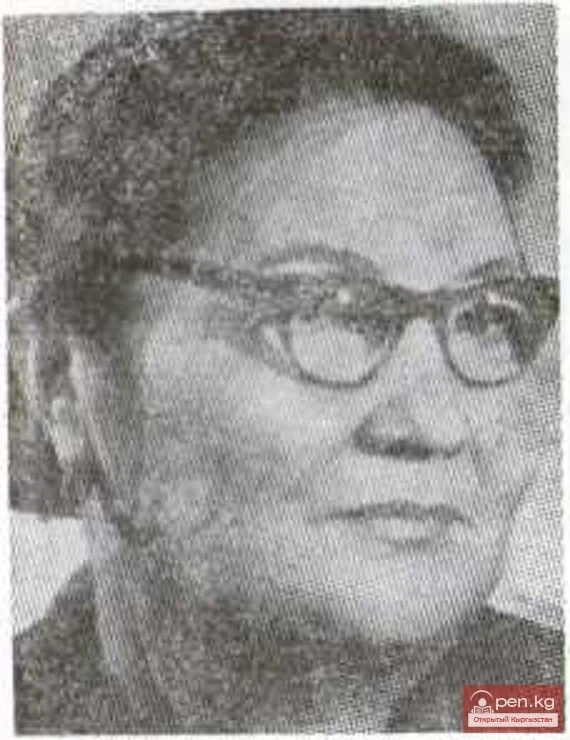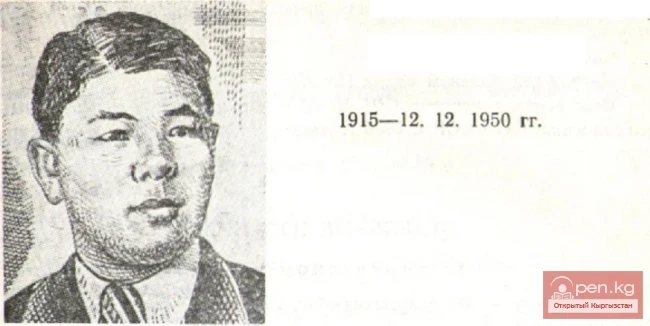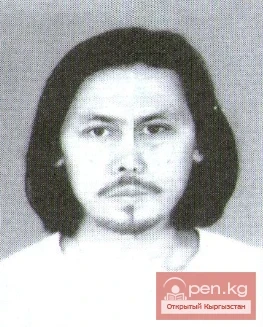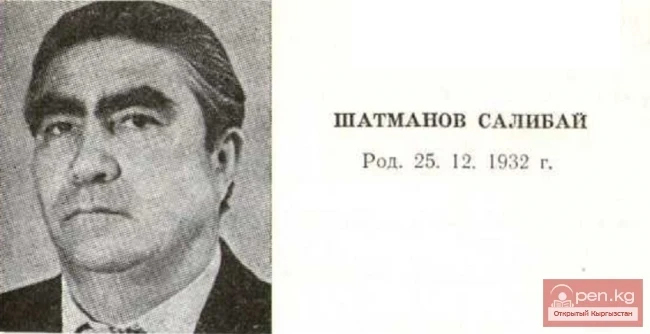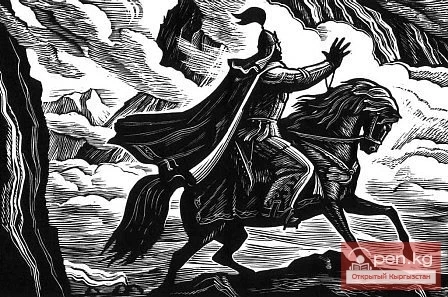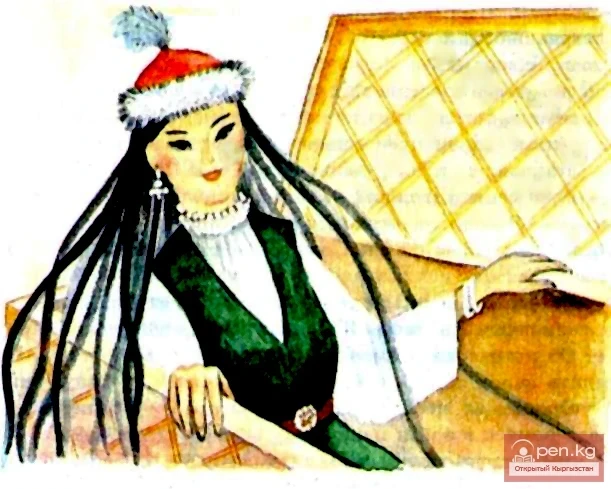
And there was a time like that. In the eastern part of the Chui Valley, at the foot of the mountains, lived a man named Kochkor with his wife Chynar. They had one and only son, whom they named Akkoen at birth, which translates to White Hare.
Kochkor was a hardworking man. He kept livestock, plowed the land, and grew millet in one plot and wheat in another. The harvested millet and wheat were enough to last until the next harvest, and they even shared the surplus with poor neighbors. They had milk, meat, and various fats. In short, they lived well and were content.
But one autumn, Kochkor caught a cold in the mountains while pasturing the cattle, fell ill, lay down in bed, and never got up again. Chynar was left a widow, and the teenager Akkoen became an orphan. Their livestock quickly left the yard, and the barns emptied...
Only one horse and a sheep remained with them, which the mother milked in the mornings and evenings. It was with the milk of this sheep that mother and son survived in their last days. But how much milk does a sheep give? Just enough for a cat...
Seeing that they could not survive much longer, Chynar slaughtered the sheep, cooked the meat, and said to her son:
— There is a place far beyond the mountains called Tekes-Kyias. There lives a man named Kyzai in one of the tribes. He is a friend of your father. When Kyzai was in trouble, he came to us, and your father lent him a hundred gold coins to help him out of trouble. Rumor has it that Kyzai has become a wealthy man. Go to him. Find him and tell him that you are the son of Kochkor, that your father has died, and your mother has sent you for help. If Kyzai is a wise man and has not become arrogant, he will understand what to do... Take with you a kurdzhun with boiled meat, mount your horse, and go with God.
And Akkoen, bidding farewell to his mother, set off on his journey. For two days he did not dismount from his horse. On the third day, he felt very sleepy. Dismounting, the young man hobbled his horse, let it graze, chewed a piece of boiled meat, laid out his sweat cloth on the ground, placed his saddle under his head, covered himself with his chapan, and immediately fell into a deep sleep. He woke up in the morning and saw camels grazing nearby; several people surrounded his hobbled horse, and they were talking about something among themselves. Akkoen took his saddle and approached them.
— Is this your horse? — asked the oldest of the strangers.
— Yes, it is mine, — replied the young man.
— Where are you coming from and where are you headed?
Akkoen told them about his short life.
— This horse is not for you, — said the same man. — Do you see the camels? This is our caravan. We don’t have a horse.
— I am the chief caravan driver, and I need a horse.
— I like your horse. Sell it to us.
— No, I won’t sell it, — said the young man. — How far can I go on foot?
— If you don’t sell it, we will take it by force, — another caravan driver threatened. — There are many of us, and you are alone. So it’s better not to argue with us.
Akkoen understood that it was no joke with such people. They could kill him and take his horse in the endless desolate steppe.
— How much will you give me for the horse? — Akkoen dared to ask.
— Take those two, — and the caravan drivers, pointing to two laden camels, took the horse, saddled it, and went on their way.
Akkoen stood by the two camels for a long time, not knowing what to do: he did not know how to handle these giant animals, as his father had never kept camels. How to figure out their temperament!
“I’d better follow the caravan,” Akkoen finally decided. “Otherwise, I will surely get lost. They will most likely come to some city. They will trade their goods there. And I will try to sell the two camels and buy a horse again.”
And the young man followed the caravan of camels, the silhouettes of which loomed far ahead. But, not used to walking long distances, Akkoen soon began to tire. And the caravan kept going further and further. “No, I won’t catch up with them,” a dreadful thought crossed his mind.
Before sunset, a strong wind blew in from the west, soon turning into a storm. It brought with it a mass of dust and sand. Everything around was engulfed in this black whirlwind. Akkoen lost sight of not only the caravan but even the path they had taken the day before. It suddenly became dark. The young man, with the camels in tow, was tossed from side to side as if his eyes had been covered. It was impossible to open his eyes from the dust, and sand crunched between his teeth.
Suddenly, he stumbled upon a wall. Behind it, it was relatively quiet. The camels hastily knelt and lay down. Akkoen unloaded them and lay down to rest, burying his face in the warm side of one of the giant animals.
He did not know how long he had slept. When he woke up, there was no storm in sight. The camels were grazing nearby. Looking around, Akkoen saw that he had stopped for the night at an old cemetery. The dune that had saved him from the dusty whirlwind turned out to be the remains of an ancient grave—a kubiz-mausoleum. The young man shuddered with fear and hurried to leave this place. He rushed to the camels, but at that moment something flashed in the sky, like lightning. He raised his head and saw something resembling a silver boat. The “boat” descended over the cemetery. From it, a chest tumbled out, landing softly in the thick tall grass. The “boat” disappeared from sight as silently as it had appeared.
Akkoen was astonished. He froze in place, as if his legs refused to move on their own.
— Hey, is anyone here? — came a voice from the carved, ornamented chest. — Help me get out into the light. I cannot do it myself.
Akkoen was even more surprised. “It seems someone is singing in the chest,” he thought. “But what if there is an evil spirit or a sorcerer inside?”
Overcoming his fear, Akkoen approached the chest and saw a small black lock. It was not locked, held by little loops. It was not difficult for Akkoen to remove the lock and open the lid. Inside the chest lay a very beautiful girl. She was covered in blood.
— Who are you? A human or a ghost? — asked the bloodied girl.
— A human, — replied Akkoen.
— If you are a human, get me out of this chest, tear your shirt and tightly bandage my wounds. I have already lost a lot of blood. I feel dizzy.
Akkoen lifted the girl into his arms like a child and quickly carried her to the dune, where his bundles lay. Untying one of the bundles, he took out a whole piece of white cloth and bandaged the stranger's wounds.
— Are the camels yours too? — asked the girl.
— Yes, they are mine.
— Bring them here.
Akkoen brought the camels, loaded them with the bundles, tightened the ropes so they wouldn't slip on the way.
— We need to set off immediately. Put me on the black camel, — said the girl, — cover my head with your chapan, leaving only a slit for my eyes so I can see the road and tell you where to go. You are probably a stranger here?
— Yes, I came from far away, — replied the young man. — On the road?
They traveled for half a day and soon found themselves in some city.
The girl commanded to follow the most deserted street. They passed several adobe huts. Rare passersby cast fleeting glances at them, apparently mistaking them for caravan drivers who often came to their city from different parts of the world.
— Turn into this old courtyard, — said the girl, pointing to an ancient, dilapidated building that hardly resembled a human dwelling.
The courtyard was completely empty. At the back stood a squat adobe hut with a crooked, half-open door and a tiny window. To the right was a shed for straw and hay.
Akkoen unloaded the bundles from the camels, brought them into the adobe hut. He gathered straw, threw it on the floor in a thick layer, laid his chapan on top, and placed the wounded girl on the bedding.
— Now drive the camels to the outskirts of the city and let them go free, — said the girl. — Go down the same street we entered the city. That way you won't get lost. And remember our courtyard well, otherwise you won’t find me later. There are many huts like this one in our city. Will you remember?
— I will try, — replied Akkoen and went to drive the camels away.
When he returned, having fulfilled the girl’s order, she gave him a new task:
— Now untie all the bundles. Let’s see what’s inside them. But first, tear a corner off the white cloth and bandage my head. Most likely, I will soon become your wife. If I recover, that will depend a lot on you and how you take care of me.
Akkoen willingly fulfilled this request.
— Now take the rest of the cloth, hide it in your bosom so it cannot be seen, and go out into the street. Behind our courtyard, there is another narrow street. Go down it. Step without raising your head. Watch your feet. If someone greets you by chance, respond to the greetings, which means they mistook you for someone else. Don't greet anyone first, don’t touch anyone with words. You are a stranger in the city. Nobody knows you, and you don’t know anyone here... You will come almost to the very end of that street. You will see a house with green gates; it is the third house from the end of the street. Boldly enter those gates. You will cross the courtyard. In front of you will be the doors to the house. Enter without looking around, as if you have been there many times before. An old man with a white beard will be sitting in the honored place. Greet him. He may not respond to your greeting, but do not take offense. Place this cloth before him. He will either ask you what you need or just nod his head. You say: my young wife is sick, will you, wise man, check her pulse? And back away from the old man, go home, and do not look back. He may follow you immediately. Or he may come later, I don’t know. But when he comes, do not reveal my face. Free my left hand from under the cloth. Be very polite and attentive to him. The old man is an observant person. He will notice everything. Now, go to the healer.
And Akkoen went to the city. He found the green gates of the house. But he did not meet a single person on the way. This was a good omen.
Already in the courtyard, he noticed that this house had two doors. “Which one should I enter?” — Akkoen hesitated. But then one of the doors opened, and a young, beautiful girl with long braids came out. With a nod of her head, she indicated that he should enter the neighboring door.
He entered. Indeed, in the honored place, with prayer beads in his hands, sat an old man with a beard white as snow. He wore a fez and a striped home robe.
Akkoen greeted him. But the old man, it seemed, did not respond, only slightly nodded his head and raised his eyes to the young man, as if to say, what do you want from me?
Akkoen placed a piece of white cloth before the old man, bowed, and asked:
— Could you check the pulse of my young wife?
And without waiting for an answer, he backed away as the girl had advised, exited the courtyard, and then onto the street. He walked back, not looking around. He had barely entered his hut when the old man appeared right behind him. Akkoen pulled the girl’s left hand out from under the sleeve of his chapan and showed it to the healer. The old man listened for a long time to the heartbeat. Then, from a gray pouch that he had been holding under his arm the whole time, he took out some remedies.
— You will apply this black ointment to her wounds, and let her drink these red powders, — said the old man and immediately left.
Akkoen did just that: he carefully covered all the wounds on the girl’s body with the black sticky ointment with a pleasant bitter smell, brought water from the well, and let her drink the red powder.
Soon the girl felt much better.
— Complete one more, last task, — she said, — go again to the city. You will go out through the gates of the house and head east. You will cross five streets. On the fifth, turn right and walk three more streets. At the corner, there will be a large house with high iron gates. Knock three times on those gates with your fist and loudly shout: “Shayymkul!” A rough voice should respond from the courtyard, answering you with bad words. Do not pay attention to this and shout: “Erke-kiz — the mischievous girl — asks for fodder for two donkeys.” If Shayymkul brings you something, take it and bring it here. If he gives nothing, scold him well, spit on the gates in anger, and leave. Go, I will be waiting for you.
And Akkoen, following the path indicated by the girl, came to the high iron gates, knocked three times with all his strength, and shouted as loud as he could:
— Hey, Shayymkul! Shayymkul!
— Who is yelling like a donkey? — someone shouted from the courtyard.
— It’s me, may the devil take you! May the fiercest dogs in the world bite you and leave you without pants! Erke-kiz asks for fodder for two donkeys.
The gates immediately opened, and two laden donkeys came out, as if they had long been prepared for Akkoen. He also managed to see Shayymkul: a broad-shouldered giant with a face as big as a bowl and ears like two large leaves. He silently handed the donkeys to the young man and immediately disappeared behind the gates.
Akkoen drove the donkeys home and reported to the girl that he had done everything as she had instructed.
— It’s too early to rest, — she said. — We have only done half the work so far. Do you know what is in the kurdzhuns on the donkeys?
— I don’t know. Shayymkul didn’t say anything.
— The kurdzhuns are filled with gold, silver, and precious stones. Immediately go back to the city. Look for a large new house. It should be very beautiful, spacious, and necessarily have a well-kept large garden. For such wealth as lies on the donkeys, not just a house, but half the city can be bought.
And Akkoen left the sick girl again.
Until evening, he walked through the entire city, back and forth. And he did not like a single house. There were no palaces in the city that matched the wealth of the girl. When he realized that he could not find a beautiful house, he bought an unremarkable little house but with a very large and well-kept garden. For it, he had to give only half a kurdzhun of his wealth. “With the remaining treasures, I can build any house,” Akkoen decided and returned home. He returned and told the girl what house he had bought and on which street.
— Go call Shayymkul here! — the girl ordered again...
Akkoen knocked three times on the gates.
— Well, who has the devil brought again? — came a disgruntled deep voice.
— I’ll give you the devil, you big-headed devil! Go, Erke-kiz is calling you. Or else, she says, I’ll tear out your tongue and make you swallow it yourself.
Having said some more rude things, Akkoen went back. Shayymkul followed him, but he did not engage in conversation with the young man.
When they entered the house one after the other, the girl said:
— I need to talk to Shayymkul face to face. Go out to the courtyard. But do not eavesdrop on our conversation. Otherwise, it will be bad for you.
Akkoen sat under the shed on the straw, laid his head on his knees, and fell deep in thought: “How is my poor mother spending her days? What does she eat and drink? She probably thinks that I have already reached Tekes, found my father’s friend there, and will soon return home with money. She is hoping for me. And what have I achieved? I lost my horse. And what did I find? A sorceress met me at the old cemetery? Maybe she is a shapeshifter? She makes me perform some strange tasks. And she knows everything in advance, and everyone listens to her. Have I fallen into the trap of unclean forces? Most likely, I need to run away from here. But where?”
His thoughts were interrupted by Shayymkul’s loud voice:
— Hey, stray one, Erke-kiz is calling you.
Akkoen was offended by the word “stray one.” He wanted even more to catch up with the camels, load the remaining bundles onto them, and go to where he had been sent. “I should give him a slap for the insult,” thought the young man. “But how can I slap such a giant? He will crush me like a bug.”
With such gloomy thoughts, Akkoen entered the adobe hut.
— Lead Shayymkul and show him the house you bought, — the girl said authoritatively. — But I warn you: throw the thought of escape out of your head. I will find you everywhere, then you will have to blame yourself. There will be no mercy! Do not dare to disobey! I do not like to repeat the same thing twice! Go! I will be waiting for you.
Akkoen said nothing in response. He led Shayymkul, showed him the house and garden, and then turned back.
The girl handed him a gold ingot the size of a fist and said:
— Put this ingot in your pocket and go down the street that brought you to the healer’s house. Before reaching the old man’s street, turn west. Soon you will see gates covered with silver. Enter through these gates. Inside stands a house with a golden door. Enter through this door. In the honored place, on silk bedding and pillows, will lie a handsome young man with a black beard. Around him will be all three of his wives. One will be massaging his head, the second will be rubbing his legs and knees, and the third will be fanning him so that he doesn’t get hot and that flies don’t bite him. This is the master of the house. Greet him politely, bow low; he may respond to your greeting, or he may not. It depends on how he feels and what impression you make on him. Place the ingot of gold beside him, step back to the door, and kneel. He may ask: “What would you like to buy with this gold?” To such a question, give him this answer: “Oh, my lord, what can be bought with such a piece? Perhaps just a headscarf for my wife! It’s just a trifle!” If he becomes interested in you and starts asking who you are and where you are from, say that you came to this city from afar, that you like it here very much, and that you even bought a house to stay here forever. If he offers you friendship and lets you stay overnight, stay and don’t be afraid of anything. Invite him to your home for a return visit tomorrow morning. Not here, of course, but to the new house. I will be there. Know that everything will be ready for the meeting of the dear guest, and don’t worry about the feast.
And Akkoen set off on the road again. And the scene unfolded before him just as the girl had said, and he found the silver gates, and the golden doors of the house... Three young beautiful women were attending to the young black-bearded man. He lay on a mound of silk bedding and pillows.
When Akkoen entered and politely greeted him, the young man did not respond to his greeting, nor did he even turn his head toward him. The young man placed the ingot of gold beside him, stepped back, and knelt. The master, seeing the gold, sat up.
— So, what would you like to buy with it? — he asked.
— What can be bought for this ingot, my lord? Perhaps just a headscarf for my wife, — replied Akkoen carelessly.
— Hey, wives, get up! — the bearded man jumped up. — Don’t you see what an important guest has come to us? Quickly spread silk bedding for him, bring a new tablecloth, food, sweets, and wine. Bring everything that is in the house! Quickly!
He rushed to Akkoen with the speed of a nimble whirlwind, lifted him under his arms, and moved him to his silk bedding.
— I don’t think I’ve seen you in our city? — asked the host with a syrupy smile.
— Of course, you couldn’t have seen me here. I am a newcomer. A merchant. I arrived before my caravan. A thousand camels laden with silk, brocade, and jewels are still on the way. The caravan will arrive in five or six days. I like your city. And to have a place where I can stay on each of my visits, I bought a house right away. The craftsmen are improving it, the garden, the courtyard, and I hurried to you to express my respect and admiration.
— Excellent, my lord. You did the right thing. Let your craftsmen take care of the improvements, and you stay with me. I hope we will become friends. Although I am an important person in the city, I am simple and love good people. Feel at home.
And Akkoen stayed overnight. The bearded man treated him to delicious Bukhara pilaf, sweet sherbet, strong tea with flatbreads, cumin, and honey. The young man slept soundly, almost as if on a royal bed.
In the morning, the host took him to show him his possessions.
— This is my house, this is the garden, this is the courtyard, — he said, smiling widely. — Don’t ask about the livestock. There are countless numbers of them in the pastures. The whole city is in my hands. If your caravan of a thousand camels arrives, don’t worry — I will organize all the trade myself, without extra worries and troubles.
— Oh, thank you very much for that. I was indeed worried about how my trade would go in an unfamiliar city. Now I am at ease. Fate itself has brought me to you. We will be friends until the end of our days... I really like your place. The house is beautiful, the garden is large and fruitful, and the furnishings in the house are rich. Now it’s my turn to invite you to my place. Be my guest.
— With pleasure! — agreed the young bearded man. And they both went to the little house that Akkoen had bought the day before. But what is this? The garden is in place, but the little house seems to have vanished. Instead, a magnificent house, a real palace, stands there. “Maybe I made a mistake with the address?” — Akkoen thought involuntarily, looking around.
— What, don’t you recognize your own courtyard? — asked the guest, noticing that Akkoen was looking around in confusion.
— No, my friend, — replied Akkoen, calming the guest. — A person was supposed to come to me on business. But I don’t see him in the courtyard, on the street, or in the garden. He must be delayed...
They entered the wide courtyard. There was no one there. They went to the house, and then the girl appeared. Her face was covered with a veil. The stranger led Akkoen aside and said:
— Lead your new friend through three doors. There will be a spacious, bright, well-furnished room. Seat him on silk bedding, place a satin pillow under his elbow. Ask him to wait a little, and you go back out. You will find me behind that door — do you see the handle is gilded? The others are covered with either silver or copper, or decorated with various stones, animal patterns. Be careful not to confuse them. Now go! The guest is waiting. Oh, what a dear guest we have today!
Akkoen led the bearded man into the room indicated to him and was also quite surprised by its furnishings: velvet carpets with Eastern patterns hung on all the walls; in the red corner on the floor lay silk bedding, right there was a patterned tablecloth, and on it was everything: eat, drink, and feast for a whole week — you wouldn’t finish it all.
— Make yourself comfortable, my friend. I will be back shortly. I will give some instructions for the household and will be at your service, — said Akkoen and left the room.
— Entertain your friend yourself, — said the girl when he peeked into her no less luxurious room. — I won’t come to you: a young woman should not be where young men dine. If he asks: “Are you married?” say: “Married.” Don’t worry about the feast. Everything he desires, I will prepare here. Just come out occasionally and say what you need... Don’t let your friend leave home for anything. Before going to bed, take him outside. And I will prepare a good bed for you in the meantime. Now go.
Akkoen wholeheartedly began to entertain his new friend. They ate fresh lamb, vegetables, and fruits, flatbreads, drank tea with honey, cream... They cracked nuts, hazelnuts, and apricot pits. They drank almond and pomegranate juices. They ate and drank only from gold and silver dishes.
— Well, Akkoen, I thought I lived well, but it turns out you are a hundred times richer than me. I never thought or guessed that such a merchant would appear in my city, overshadowing all the local merchants and all the city nobility with his wealth. I am immensely glad to have met you. We will develop such construction of houses of new architecture in the city that all the architects of the world will die of envy. I see you have found good craftsmen. Or did you bring your own?
— I brought some of my own and found some here. Among the people, you can always find great talents. The main thing is to find them.
— You have good taste. It’s a pity, of course, that I can’t meet your wife. I would like to learn some secrets of cooking from her. Everything is so delicious. And at the same time, thank her for the generous feast.
— She will soon pass on the secrets of the dishes to your wives, — Akkoen replied, — when my main caravan arrives and we start visiting each other with families. So don’t be sad. Eat, drink, and feel at home. If you want to taste something else, just say, my wife will quickly prepare everything. As for cooking — she is a great master.
— No, no, I’m already full, — said the guest. — Thank you and her for the generous feast. It’s already late. I will probably stay with you for one night. Will I be a bother?
— What are you talking about? What kind of talk is that! Of course, spend the night with us. Come on, let’s go outside, breathe in the fresh air while my wife prepares the bed for us.
They went outside, admired the starry sky, and breathed in the fresh air.
They lay down to sleep in one room, as was decided by the girl. Before sleeping, already in bed, they talked for a long time about the past, present, and future. Then sleep overcame their eyelids, and they fell into a deep slumber.
Akkoen woke up from some strange blow. He could not remember whether he had slept long or short. Opening his eyes and sitting up in bed, he could not believe what he saw. His guest lay on his bed beheaded: the head was separate, the torso was separate. A sea of blood. The girl stood over him with a sword in one hand and a candle in the other, pale, all in tears.
Akkoen was genuinely frightened: whatever happened, he did not expect such a sad ending.
— Don’t be afraid, — said the girl. — It had to happen. Now I know that your name is Akkoen. During the night, the guest addressed you several times. I heard it through the open door and remembered... Now listen to my story.
The old man you visited and who treated me is the best, one might say, inseparable friend of my father. He is the chief healer and herbalist of human ailments in this city. He knows me by face, but remember, I hid from him under your chapan? I didn’t want him to recognize me right away.
The rough, broad-shouldered, clumsy Shayymkul is the chief master-builder of the city, also a good friend of my father — the khan. Know that I am the daughter of the khan.
When I was two years old, my mother died, so people later told me, my father married another woman. The stepmother did not mistreat me, but she did not particularly love me either. But my father adored me: I was his only child. Apparently, he had long wanted a son, an heir. But I was born a girl. And when I turned seven, he began to raise me like a boy. He dressed me as a boy. Taught me to ride a horse. And when I grew up — to gallop, shoot a bow, cut vines with a saber, and engage in falconry. I learned all the boys’ games and amusements, but I didn’t know how to communicate with girls my age at all. It turns out it is very bad to be a girl and not know their character.
Two years ago, to my great misfortune, my father — the khan — passed away. The stepmother immediately went somewhere. The people elected me as khan, as I was the only heiress.
What kind of ruler am I? The viziers, my father’s friends, governed the people, and I was only counted as the ruler. In reality, I was lost in the mountains, hunting with my falcon: only there, far from people, was it easier on my soul.
One day, I ran out of fresh meat for my hunting falcon. I went to the market, to the butcher. Previously, there was an old man as the butcher; he knew me well, I often took a piece or two of fresh meat from him for my hunting bird. This time, the familiar butcher was not there. The carcasses of cattle were being butchered by this one, who now lies here without a head. I asked him for a piece of beef from the muscle part — hunting birds are usually fed muscle meat, not fatty and not salty. As soon as this butcher saw me, he trembled all over like a leaf in the wind. I noticed: he wanted to cut meat from the hindquarters of the slaughtered cow, but he couldn’t — his hands were shaking. I found it funny and laughed. And he, the fool, apparently understood my laughter completely differently, as if I had fallen in love with him at first sight. Of course, he didn’t say anything to me but asked to work in the kitchen as the chief butcher, promising that he would treat my guests to the most delicious meat dishes.
I agreed, told him to come back in a week while I got rid of the other butcher who worked in our kitchen. I kept my word and took him on as a worker.
He worked diligently for a week, and all the kitchen workers were satisfied with him. He really knew the carcasses of animals well. He knew which part to use for pilaf, which for shorpo, which for manti, samsa, chuchpara... Then he asked me to find him a girl he could marry. I found one. He married. A month later, he wanted to marry a second one. He married. Two months later, he married a third one. And three months later, he wanted to marry me, the khan’s daughter. Can you imagine? What a rogue! Of course, I refused him.
Yes, I forgot to tell you. This scoundrel lived in one of my father’s beautiful houses. You saw that house yesterday. Isn’t it beautiful? When his filthy tongue turned to make me an offer — to become his fourth wife, I asked him to vacate my father’s house and get out. But he, ungrateful, instead of leaving, inflicted several wounds on me with a knife, threw me into my father’s silver boat, and brought me to the ancient cemetery, where you helped me escape from the chest. You, Akkoen, saved my life, helped not only to heal my wounds but also to take revenge on this cruel man. Now you can marry me. Otherwise, I won’t be able to repay my debt. My name is Ainek.
Akkoen gladly agreed to take her as his wife and in turn told her about his fate. Ainek immediately called her loyal friend and assistant Shayymkul and ordered him:
— Get into my father’s silver boat and fly to Akkoen’s mother. Build a house there that will be spacious enough for our children to live in, and we could receive various guests. Take from the treasury as much gold as needed for the construction of the house and all its improvements. I give you three days. On the fourth day in the morning, be here; I will arrange your wedding. It’s time for you to finally get married. That’s it. Do as I commanded.
And Shayymkul flew to Akkoen’s homeland. Ainek dressed Akkoen in the finest clothes available in her kingdom, gave him three alchiks from the knees of a kuldzh — a wild goat — and said:
— Take these alchiks and go to that old healer. Bow to him with all politeness. This time he must respond to your greeting. He will ask: “Why have you come?” You say: “Ainek sent me. She ordered me to play with you with these alchiks.” Then think of what else to add to my words. Your main task is this: the old man has a daughter, Aksamay. You must persuade him to marry this Aksamay to Shayymkul. Go.
Akkoen came to the old healer, greeted him. He responded to his greeting and asked:
— You must have come for an important matter, my son?
— Yes, father, — replied Akkoen, — Ainek herself sent me to you. She ordered me to play with you with these alchiks and to amuse you a little.
— Oh, Ainek sent you? Then there is an important matter. Well, let’s see your alchiks. If we are to play, let’s play.
Akkoen, taking out three alchiks of kuldzh from his pocket, placed them before the old man.
— Son, who plays with three alchiks? — asked the old man with a chuckle.
— You are right, father. That’s why I came to you, so you would add a fourth alchik. This alchik is mine, this alchik is Ainek’s, this alchik is Shayymkul’s, so let’s have your fourth alchik.
The old man thought for a while, then called for the old woman. She thought for a while, called for Aksamay. Akkoen recognized her immediately; he had seen the girl when he came the last time.
— Daughter, Ainek sent three alchiks. Each of them has its owner, — said her father. — The third alchik is Shayymkul’s. So, he doesn’t have a pair yet.
— You decide, — said Aksamay. — Whatever Ainek says, that will be.
And the girl left.
— Got it, son? — said the old man. — So pass it all on to Ainek. She is clever. She will understand everything. Whatever she decides, that will be. You will tell me later about her decision.
On the fourth day, Shayymkul arrived and reported that Akkoen’s mother was already living in the new house. Ainek arranged a grand feast. When the people gathered in the square, she addressed them:
— Dear my tribesmen! Until now, after my father’s death, I ruled over you. I don’t know how I managed it, but I was your khan. I have found my pair, my fate. A girl is supposed to get married. Here is my husband, Akkoen. He is from distant lands, and I am going to his homeland. Instead of me, I leave Shayymkul to rule the state. You know him well; he is a good and honest man. Today, his wedding with Aksamay will take place here. They will live as they should, in the palace. I ask you to love and cherish them. I will not forget you. I will sometimes fly back on my father’s silver boat. Bless me!
The people blessed Ainek and Akkoen, and they flew to his homeland to his mother that very day.







